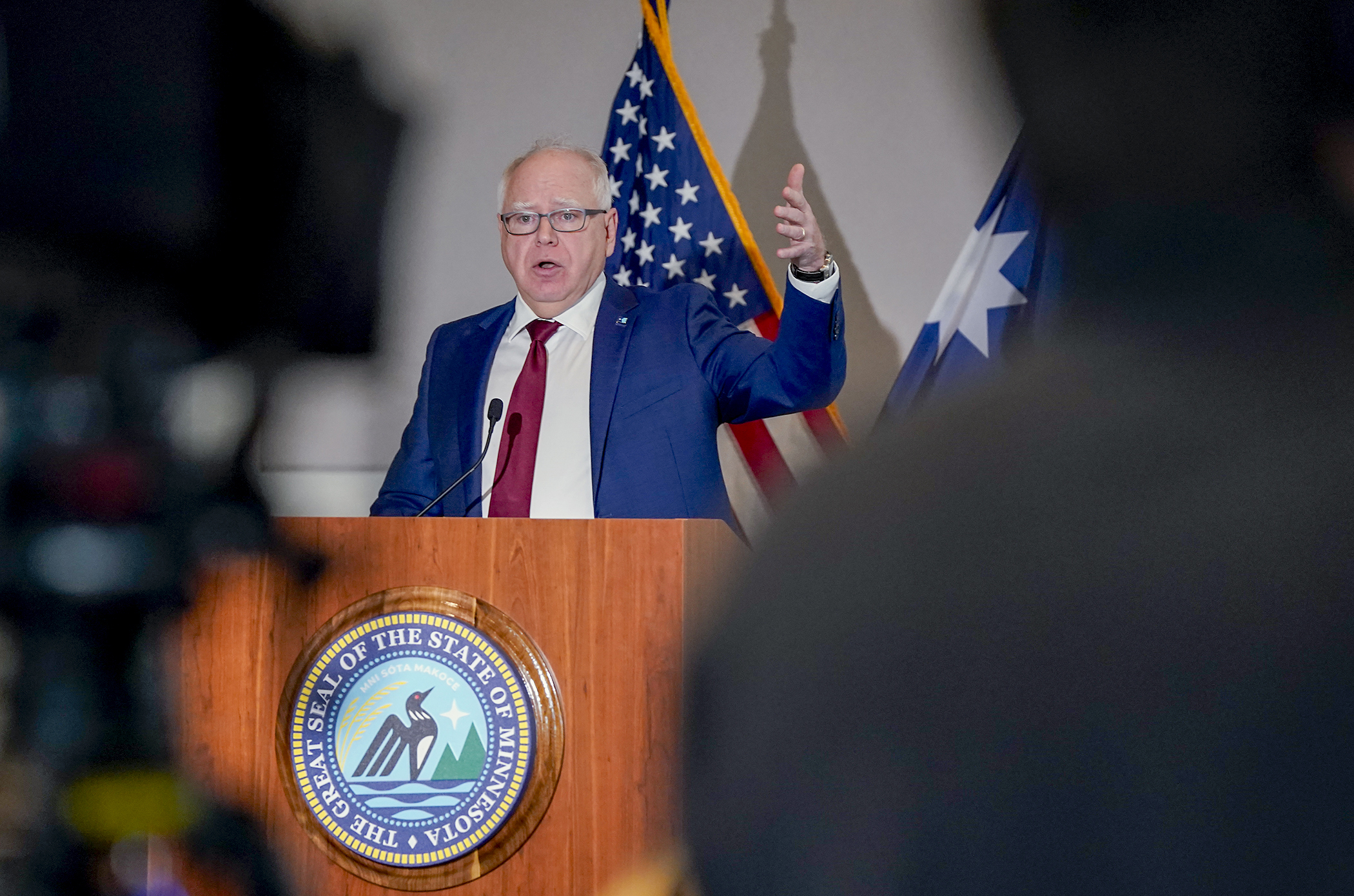Tracking the ‘moving target’ of tax changes
The term “ripple effect” is used to describe cases in which an action provokes consequences that lead to other consequences. But, when it comes to the federal government’s COVID-19-related relief packages, those ripples are some pretty substantial waves.
While grants and loans have been part of those packages, a lot of what’s been signed into federal law has to do with temporary tax law changes. Deadlines are being extended, while deductions, exclusions and credits are growing.
And many of those changes made in Washington, D.C., affect Minnesota’s tax policy and revenues, often raising the “To conform or not to conform” quandary. Once the state takes action, county governments often must make resultant tax decisions, then cities based upon theirs. The final ripple is how it all affects tax filers, be they individuals or businesses.
On Wednesday, the House Taxes Committee received an update on how recent federal tax changes may affect Minnesotans, and how the Revenue Department has changed its rules to ease the financial burden on those whose incomes are being affected by the pandemic’s spread.
The committee met as the U.S. House continues debating a new relief package passed by the Senate on Tuesday. Hence, the committee chair, Rep. Paul Marquart (DFL-Dilworth), said, “This is a bit of a moving target, as I’m sure the current package will not be the last one.”
But first: How have tax deadlines changed for Minnesota filers? Deputy Revenue Commissioner Robert Doty explained the key changes at Wednesday’s remote hearing.
For individual tax filers
You now have until July 15 to file and pay your 2019 Minnesota income taxes without any penalties or interest.
If you plan to file estimated tax payments for 2020, you can calculate them according to particular percentages of your estimated 2020 tax liability or actual tax liabilities from 2019 or 2018.
The Revenue Department is stressing its flexibility in working with filers on a case-by-case basis. If you’re experiencing financial hardship due to COVID-19, contact them to explore options for penalty abatement or payment plans. Visit revenue.state.mn.us/our-response-covid-19 for details.
For businesses
If you file corporate tax returns, you’re a C corporation, and that means that you have seven months to file your state taxes after the conclusion of whatever the federal government settles upon for its corporate tax deadline. (It’s currently July 15.) If your business income is filed as individual income, you’re an S corporation, or “pass-through” entity, and you have six months after the federal deadline to file your state taxes.
For businesses affected by one of the governor’s executive orders, there are currently grace periods that expire on May 20 for the payment of sales and use taxes, as well as lawful gambling tax payments. And a 60-day grace period has been granted for MinnesotaCare tax payments due April 15, and 60-day filing extensions are available upon request for MinnesotaCare returns that were due March 16.
Businesses also have a grace period available for filing 2020 estimated taxes based upon percentages of tax liabilities for 2019 or 2018.
What federal tax changes may affect you or your business?
There’s a pretty substantial list of temporarily expanded deductions, exemptions and credits in the federal relief packages. Now it’s up to the Legislature to determine which ones should also be adopted on a state level, with an eye to how state revenues could be altered depending upon if we “conform” or not.
In testimony Wednesday, Sean Williams, a legislative analyst with the nonpartisan House Research Department, highlighted these changes:
The Families First Coronavirus Response Act enacted on March 18 requires that certain employers with more than 500 employees provide paid sick or family leave to their employees, but also provides refundable tax credits of up to 100% of those wages paid (up to $200 per day). The total credit is limited to $10,000.
Employers can deduct wages as a business expense, so those tax credits for employers are added to the employer’s gross income in order to avoid the double benefit of taking both the credit and the deduction.
The largest federal package is the Coronavirus Aid, Relief and Economic Security Act, commonly referred to as the CARES Act. Williams drew the committee’s attention to four elements that affect individual tax filers. Each has an effect on federal adjusted gross income, which is now the starting point for calculating income taxes at both the federal and state levels. They are:
- allowing taxpayers to take a penalty-free distribution of up to $100,000 from their retirement accounts, and repay the amount withdrawn over three years;
- allowing an above-the-line charitable contribution deduction of $300;
- suspending the 60% limitation on cash charitable contributions allowed as itemized deductions; and
- excluding from gross income up to $5,250 in employer payments to an employee's student loan.
As for businesses, many CARES Act provisions temporarily and retroactively suspend certain provisions enacted in the 2017 Tax Cuts and Jobs Act that expanded the tax base for business taxpayers. The Legislature retroactively conformed to this tax base expansion in 2019. Here are the big CARES Act changes for businesses:
- allowing forgiveness for part or all of their “Paycheck Protection Program” loans and exclude that total from gross income;
- providing that corporate charitable contributions (including food) can now be up to 25% of taxable income;
- allowing that employers experiencing a significant decline in gross receipts are eligible for an employee retention credit for tax year 2020;
- allowing net operating losses from 2018, ’19 and ’20 to be carried back five years, and suspending the net operating loss deduction limit of 80% of taxable income until 2021;
- delaying the TCJA’s new limits on excess business losses until 2021;
- expanding the business interest deduction limit from 30% to 50% of taxable income; and
- allowing certain improvements to real property to qualify for 100% bonus depreciation.
How will this affect the state budget?
Several provisions are expected to alter state revenues significantly, some positively, others negatively.
For example, provisions from the Families First Coronavirus Response Act are expected to increase General Fund revenues by $43.6 million for fiscal year 2021, while the Further Consolidated Appropriations Act signed into law in December – which dealt with distributions from retirement accounts and 529 college savings plans -- is projected to reduce state revenues by $23.4 million in fiscal year 2021.
Many more of the new provisions will be taken into account in a new budget forecast that has a target release date of May 5.
Related Articles
Search Session Daily
Advanced Search OptionsPriority Dailies
Full House convenes for first time in 2025, elects Demuth speaker
By Tim Walker DFL, Republicans convene with a quorum for the first time in 2025 session after agreeing to a power-sharing deal.
DFL, Republicans convene with a quorum for the first time in 2025 session after agreeing to a power-sharing deal.
Walz proposes slimmed-down 2026-27 state budget, sales tax changes
By Tim Walker This is an odd-numbered year, and so the Legislature is constitutionally required to craft a budget to fund the state government for the next two fiscal years.
Gov. Tim Walz...
This is an odd-numbered year, and so the Legislature is constitutionally required to craft a budget to fund the state government for the next two fiscal years.
Gov. Tim Walz...